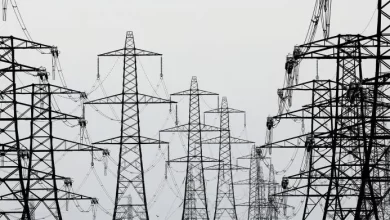The Debt Management Office (DMO), said as at February 29, the Federal Government had issued promissory notes valued at N968.09 billion across a number of sectors.
It said this in a document obtained from its website, detailing the breakdown of sector beneficiaries and how much was issued to them.
It said that oil marketing companies were issued N266.07 billion between December 2018 and July 2019.
For State Governments, N487.85 billion was issued to them between December 2018 and December 2019.
The DMO said that government agencies were issued N68.79 billion between April 2019 and July 2019.
It added that exporters under the Export Expansion Grant (EEG) programme were issued N145.371 billion between December 2019 and February 2020.
The document noted that maturity dates for the notes was between December 2019 and December 2024.
A promissory note is a financial instrument that contains a written promise by one party to pay another party either on demand or at a specified future date.
The Federal Government issues promissory notes to settle incurred local debts, and provide stimulus to the economy.
… to priortise job creation in 2020 budget
The Minister of Finance, Budget and National Planning, Zainab Ahmed, has said Federal Government would prioritise its expenditures to favour major capital expenditures with greater impact in the 2020 budget.
Speaking on the side-line of an international conference on “Commodities Trading Ecosystem’’ in Abuja, Ahmed said the decision followed the recent unfolding global events of coronavirus pandemic and the oil price war.
Ahmed said that only capital expenditures which would create jobs and enhance the ease of doing business in the country would be considered before others.
She said that although the oil sector contributed only nine per cent to the economy, but was a large driver of government revenue and non-oil sector.
“It is a reality call for us that we must develop the non-oil attitude in everything we do.
It is a time for us to review what we have planned and to priortise expenditure in favour of major capital expenditure that will have greater impact which will create jobs and visibility and also enhance the ease of doing business in our country.
Any expenditure that are not critical, we must defer to do it at a later time when things become more normal,’’ she said.
The two-day conference with the theme `Commodities Trading Ecosystem: “Key to Diversifying Nigeria’s Economy”, was organised by the Securities and Exchange Commission (SEC).
It attracted financial and capital market stakeholders across the country.





